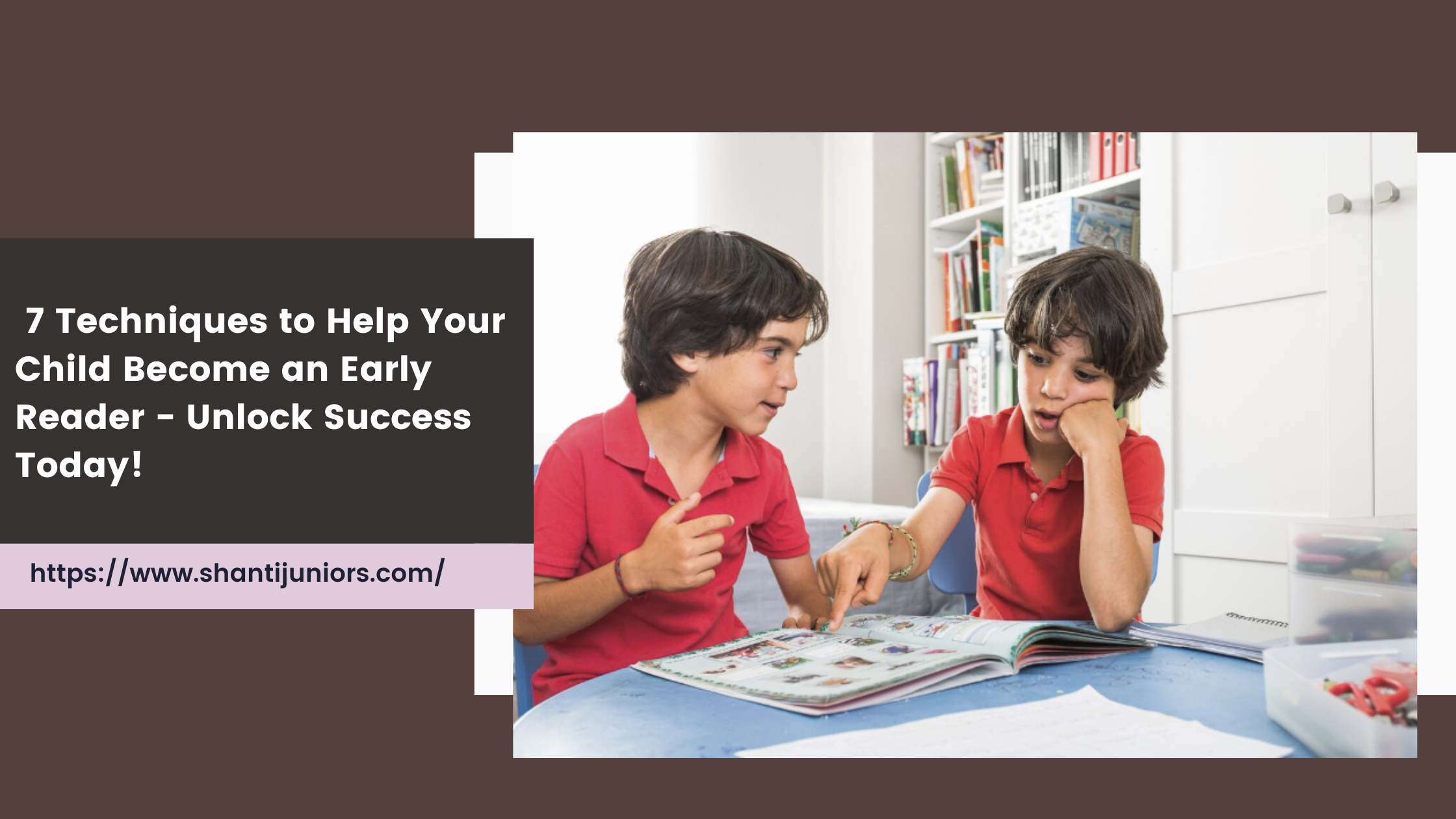

Discover the 7 techniques essential for early childhood reading success. Explore expert tips and strategies to empower your child's literacy journey.
In today's fast-paced world, literacy is a cornerstone of success. As parents, nurturing our children's reading abilities early sets a strong foundation for their future achievements. This comprehensive guide dives deep into the top strategies and techniques to foster early reading skills in children. From interactive storytelling to language-rich environments, discover how you can unlock your child's potential and pave the way for lifelong learning.
Immerse your child in captivating narratives that ignite their imagination and curiosity. Explore a myriad of storybooks ranging from classic fairy tales to educational adventures. Incorporate interactive elements like sound effects and role-playing to make reading sessions engaging and memorable.
Delve into the world of phonics to help your child grasp letter sounds effortlessly. Utilize interactive games and apps designed to reinforce phonemic awareness. Practice blending and segmenting sounds through playful activities, ensuring a strong foundation in phonics principles.
Expand your child's vocabulary through daily word exploration activities. Create word walls adorned with colorful visuals to reinforce new words. Encourage conversations and storytelling, providing ample opportunities for your child to use and understand diverse vocabulary in context.
Empower your child with sight word mastery strategies for fluent reading. Incorporate flashcards, games, and repetition to reinforce high-frequency words. Celebrate milestones as your child confidently recognizes and reads sight words independently.
Craft literacy-rich environments at home and in educational settings. Create cozy reading nooks filled with a variety of books catering to your child's interests. Foster a love for reading through frequent library visits and participation in reading-themed events.
Enhance reading comprehension and critical thinking skills through interactive read-aloud sessions. Encourage active participation by asking open-ended questions and prompting discussions. Explore diverse genres and themes, nurturing a well-rounded approach to literature appreciation.
Cultivate strong parent-child partnerships centered around reading and learning. Engage in joint reading activities, modeling fluency and expression. Provide positive reinforcement and encouragement, fostering a supportive environment conducive to reading success.
Also Read: Exploring the Best Preschool Franchise Opportunities in India
How can I motivate my child to read regularly?
Encourage reading as a fun and rewarding activity by incorporating incentives such as sticker charts or reading challenges.
What role does technology play in early literacy?
Technology can complement traditional methods by offering interactive learning platforms and digital libraries tailored to young readers.
Are audiobooks beneficial for developing reading skills?
Audiobooks can enhance listening comprehension and pronunciation while instilling a love for storytelling.
How can I identify my child's reading level?
Consult with educators or utilize reading assessment tools to determine your child's current reading proficiency and tailor activities accordingly.
What if my child shows reluctance towards reading?
Address underlying concerns or challenges by exploring alternative reading materials or seeking guidance from literacy specialists.
How do I create a literacy-friendly home environment?
Establish a dedicated reading space, stock it with age-appropriate books, and integrate reading into daily routines like bedtime stories.
Is it normal for children to progress at different rates in reading?
Yes, children develop reading skills at varying paces. Focus on providing individualized support and celebrating each milestone achieved.
In conclusion, nurturing early reading skills in children is a transformative journey filled with joy and discovery. By implementing the seven techniques outlined in this guide and fostering a nurturing reading environment, you're laying a solid foundation for your child's academic and personal growth. Embrace the power of literacy and watch as your child blossoms into a confident and enthusiastic reader, ready to embrace the world of knowledge and imagination.